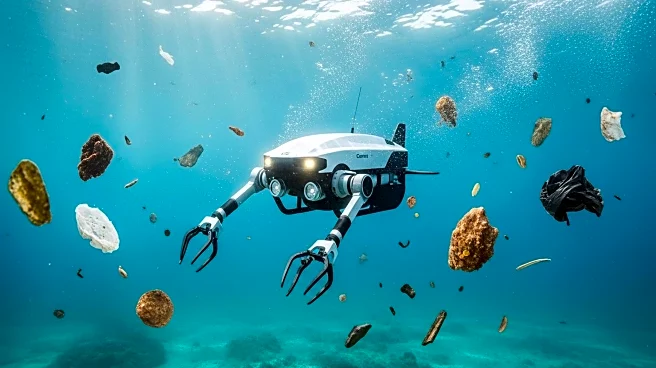What's Happening?
The Technical University of Munich (TUM) has developed an autonomous diving robot as part of the EU project SeaClear 2.0, aimed at addressing marine litter. This robot uses AI to detect and retrieve underwater waste, such as e-scooters and fishing nets, and has been successfully demonstrated in the port of Marseille. The system includes a service boat, a drone, and a small underwater search robot, all working together to identify and collect debris. The TUM robot is equipped with cameras and sonar for precise object identification and uses a strong gripper to handle objects weighing up to 250 kg.
Why It's Important?
Marine litter is a significant environmental issue, affecting ecosystems and human health. The development of autonomous waste collection systems like TUM's robot offers a scalable solution to this problem, potentially reducing the need for human divers and increasing efficiency in waste retrieval. This technology could revolutionize waste management in ports and coastal areas, contributing to cleaner oceans and improved marine biodiversity. The project also highlights the role of AI and robotics in environmental conservation, showcasing how technology can be leveraged to tackle global challenges.
What's Next?
The TUM team plans to further refine the robot's capabilities and expand its deployment to other ports and coastal regions. As the technology matures, it could be integrated into broader waste management strategies, potentially influencing policy and regulatory frameworks for marine conservation. Collaboration with other research institutions and industry partners will be crucial in scaling the technology and ensuring its effectiveness in diverse environments. The success of this project could pave the way for similar initiatives worldwide, promoting sustainable practices in marine waste management.











